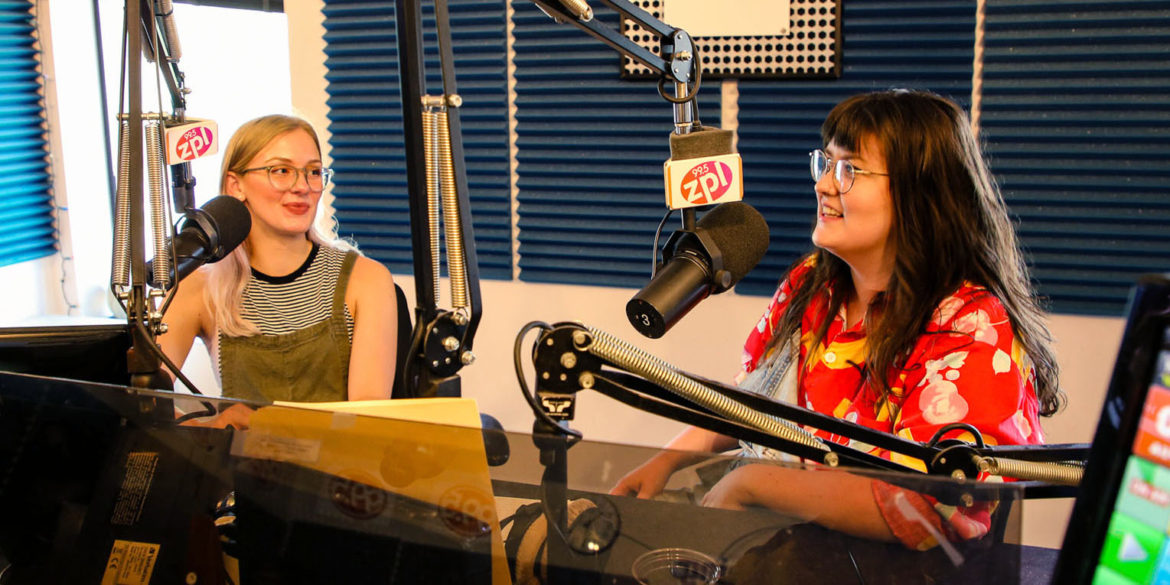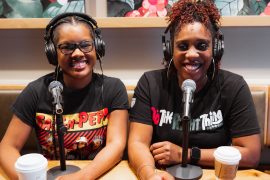From the Billboard top 100 songs to Grammy nominees, the music industry has always been a male-dominated field. One study of the 600 most popular songs between 2012-2017 found that only 22.4% of artists were female. That number is most definitely smaller for non-binary musicians. But this isn’t because women and non-binary musicians don’t exist– they’re definitely out there. They just don’t always get the same publicity and radio time as men.
“Music Minus Men,” a podcast by Jerica Bean and Laura Harmon, is aiming to help change this problem. Jerica and Laura are queer women who are passionate about promoting women and marginalized voices in music. By researching and highlighting lesser known women and non-binary performers, they are hoping to help make the music industry less focused on men. Jerica and Laura told us more about how they started the podcast, and what advice they’d give to other new podcast creators.
Julia Bluhm: To start off, tell me a bit about yourselves. Outside of this podcast, what are your interests and career paths?
Jerica Bean: I went to college with Laura at DePauw University. I studied communications and I did TV there for a while which lead me to radio. I just liked music a lot, so I wanted to bring all that together. I work as a promotions assistant at 99.5 ZPL media. I have a couple of side jobs, but that’s where my career lies right now.
Laura Harmon: I graduated with an English writing degree with a pretty huge concentration in women’s studies. After graduating I’ve been all about the money, so I’ve been working with kids. I am a nanny in the morning and evening, and I work at a daycare during the day. My career in writing hasn’t started yet but I’m hoping to start that soon.
Julia: How did the podcast get started?
Jerica: We got to know each other through doing improv, because we were both interested in comedy. And we had a radio show together at DePauw called “The Future is Fluid” and that kind of grew into what the podcast is now. We tried to do about six songs by different artists each week, featuring women and non-binary people, and we covered all those over the course of an hour.
I had noticed that since graduating, I didn’t have lot of outlets aside from the work that I do. I missed doing this radio show and talking about women in music, so I wanted to potentially explore that in a slightly different light.
Laura: Yeah, after the radio show I felt like I was so starved for new music because I didn’t have the motivation to look for new, cool artists anymore. So that was a great benefit of this. The podcast is also a great opportunity because we used to have to censor a lot of stuff on the radio–– but on a podcast, there are no rules.
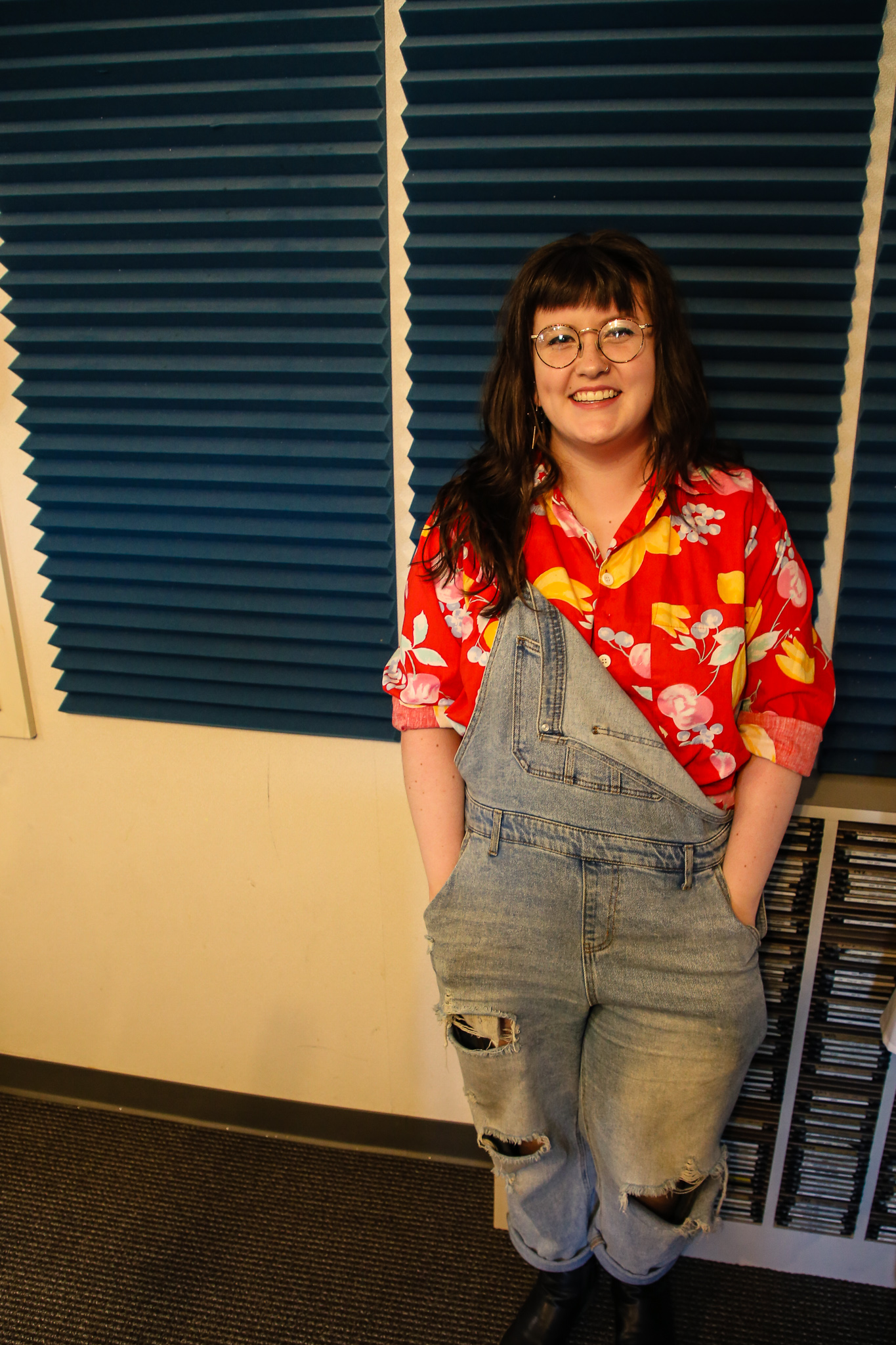
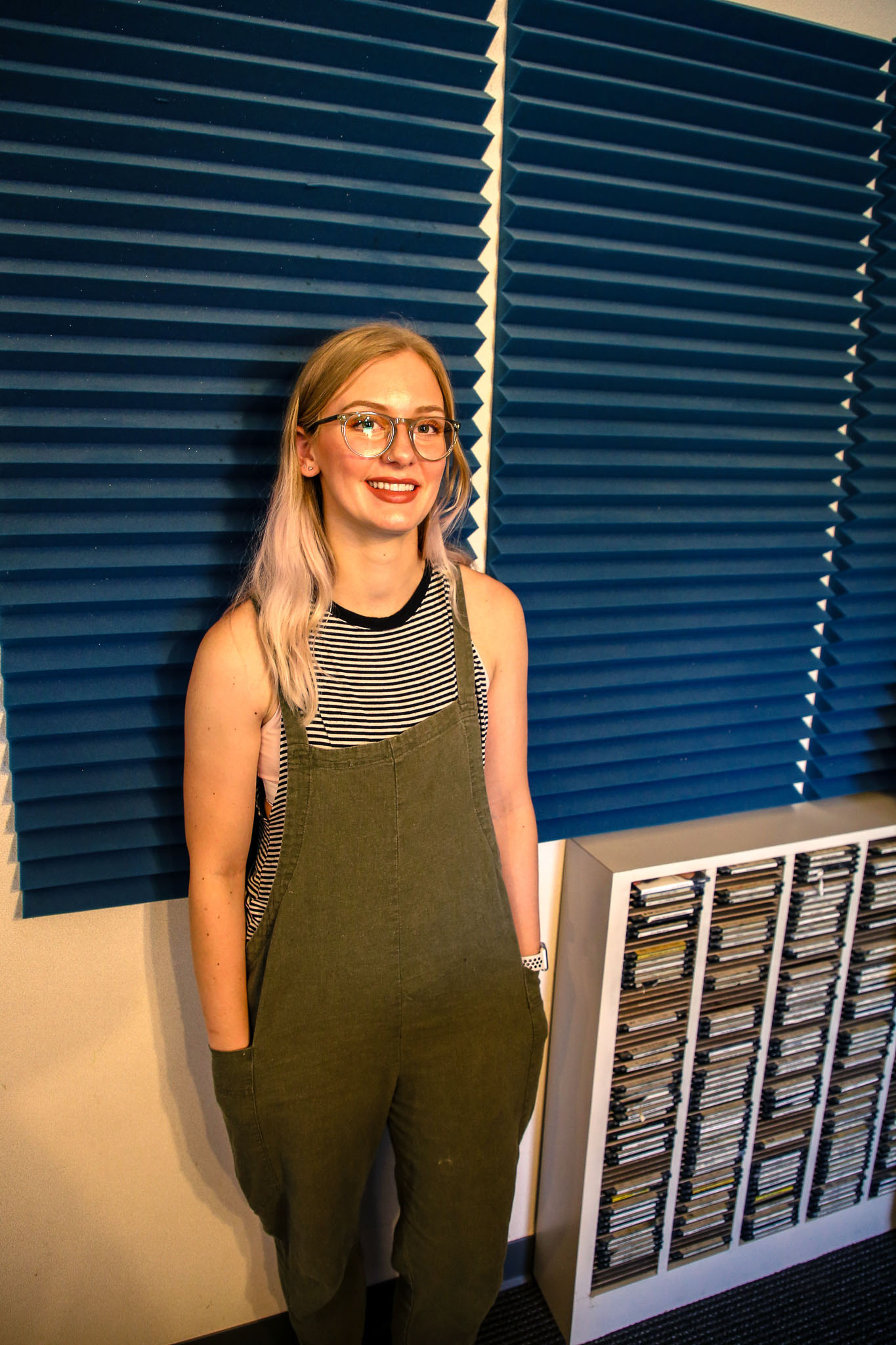
Julia: How would you describe this podcast?
Jerica: The first thing I would say would be… it’s just kind of dumb. We just sit and talk together. It’s centered around women and non-binary people in music. We try to include as much information as we can, so I would say it’s both informational and definitely comedic.
Julia: What made you want it to focus on women and non-binary people?
Jerica: I had been listening to radio stations in general and noticing that it’s just a male-heavy industry. Or at least, that’s the music that’s played. I was thinking, I want people to have the opportunity to know more about women and non-binary artist because I feel like people often don’t take that step of searching for what’s not widely played. There was a study done through Spotify a couple of years ago, where they would look at your analytics and tell you the percentage of male or female artist that you listen to. And even my spotify was like 70% men. And I thought, “this is stupid,” as a person who really aligns myself with women.
Laura: Yeah, I often wouldn’t take that step, like, as a civilian. But whenever I do take the time to look up a new awesome artist I’m always really glad that I did. A lot of times, artists these days (who are men), when you dive deeper into their background they get worse and they’re ruined for you. But all of the artists I’ve found for this podcast, the deeper I dive into their background, the more I like them.
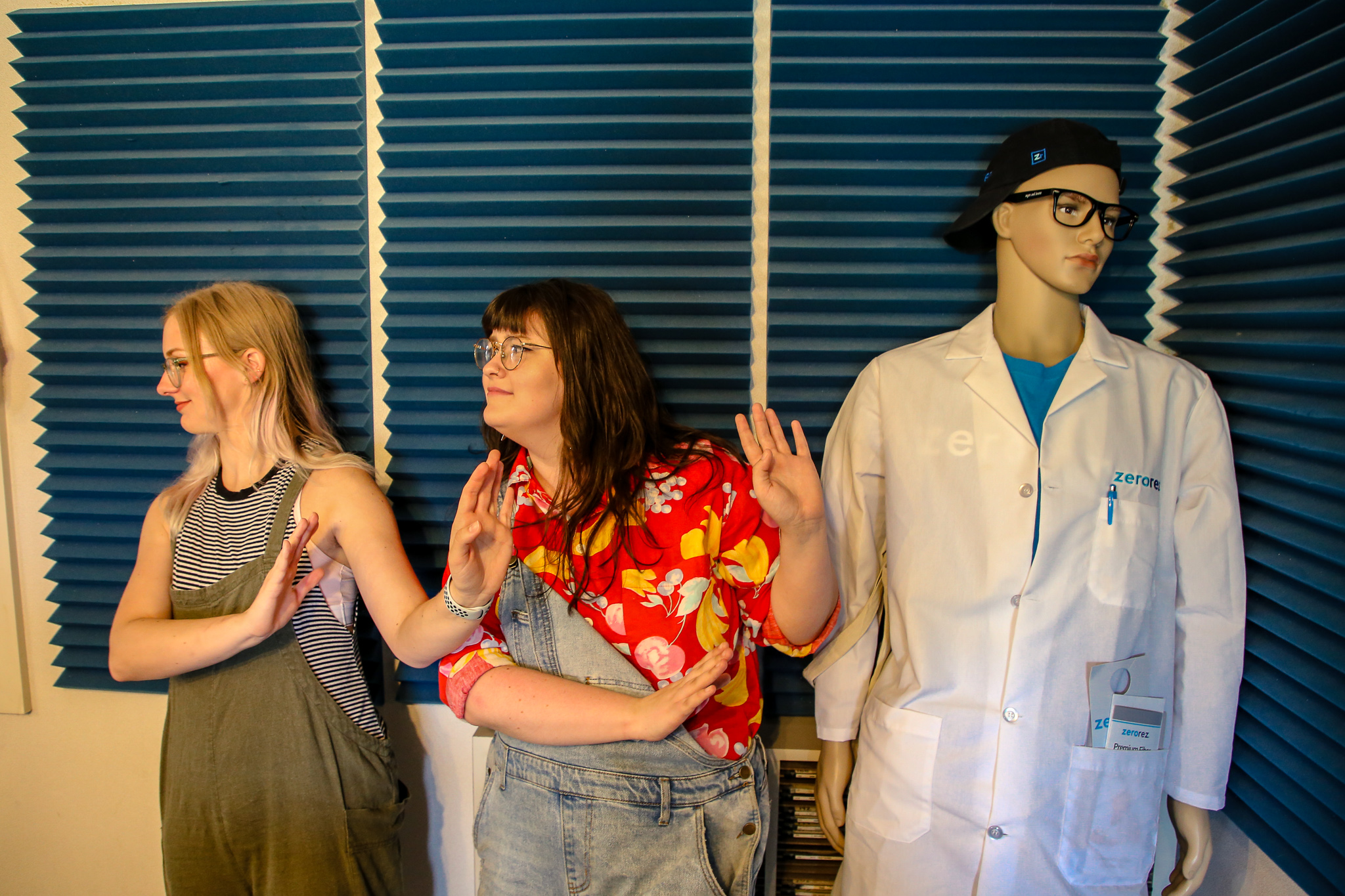
Julia: What advice would you give to someone who wants to start their own podcast?
Jerica: Look into what resources your community has, especially if you don’t have money. We’ve been using the public library as our recording space. As for developing the concept of the podcast, I’ve just been listening to a lot of other podcasts and getting tips from those.
Laura: And if you have a friend with a microphone, ask them if you can borrow it! Also, if you’re in college, do it before you graduate. There are so many resources in college to learn everything and use their equipment.
Listen to the podcast at Anchor.fm, Apple Podcasts, or Spotify and follow Music Minus Men on Instagram!

